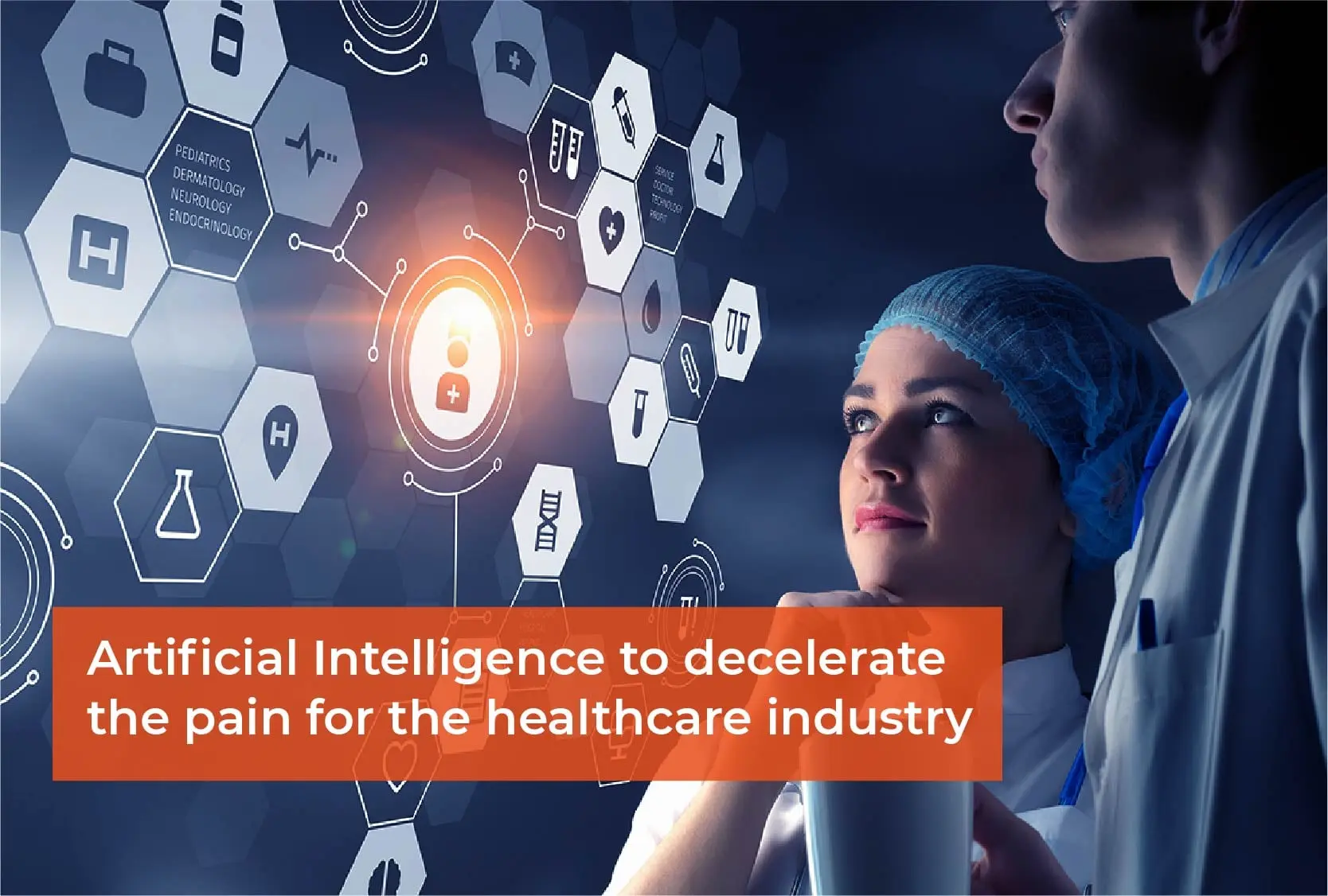The product of human judgment and scientific evidence has always been a part of healthcare. Artificial intelligence (AI) advancements are bringing those two aspects closer together than ever before, and the business is feeling the effects. Data-based artificial intelligence is defined as computer systems capable of performing activities that normally require human intelligence. It examines massive volumes of data utilizing algorithms to learn how to complete jobs without even being explicitly programmed.
As AI in healthcare shows to be a vital component in diagnosis, therapy, care delivery, results, and cost, this capability is causing waves of change. Medical research has advanced rapidly, increasing the lifespan around the world. However, as people live longer, healthcare systems face increased demand, rising expenses, and a staff that is straining to meet the requirements of their patients. Population aging, shifting patients’ needs, a change in lifestyle decisions, and the never-ending cycle of innovation are just a few of the inescapable forces that are driving such a demand. An aging population’s ramifications stand out among these. By 2050, one in every four people in Europe and America will be over 65, putting a strain on healthcare systems. Treating such patients is costly, and it necessitates a shift in system philosophy from episodic to continuous care.
The cost of healthcare is just not keeping up with inflation. Healthcare systems will strive to remain viable unless big structural and transformational changes are made. Health systems also require a larger staff, but the World Health Organization estimates that a 9.9 million physician, nurse, and midwife shortage will exist globally by 2030, despite the fact that the global economy might provide 40 million new health-sector jobs by 2030. Not only do we need to recruit, educate, and retain additional medical professionals, but they also need to make sure that their time is spent where it is most valuable—caring for patients. And meanwhile, technology-powered bots can take up the other repetitive functionalities.
Now that we are well-versed with the needs, let’s analyze how they improvise the overall healthcare facilities:
- Claims Management
An automated claims processing system can transport claims and any necessary electronic health records in real time from the provider. In addition to processing claims, automated algorithms are able to validate eligibility, benefits, provider contracts, and medical diagnostic data in real time.The health insurance communication, provider and member matching, and quality control are all handled by the claims management services provided by Smart Data Solutions. Claims management outsourcing might free up time and resources for other projects at your business. - Appointment Setting
AutomationEdge’s new, simplified hospital booking software empowers both patients and administrative staff to enhance their service delivery. The amount of time allotted for various sorts of individual visits will be determined by the scheduling system, and the demands of the doctors will determine the best times of day for patient visits.Here’s a quick summary to know how to increase scheduling effectiveness and how talent management software can be useful:- Schedule the appropriate personnel for the desired shifts.
- Allow for unconventional timetables.
- Payroll and scheduling can be combined for effective operations.
- Maintain compliance.
- Make the schedules publically available in advance for better coordination.
- Enhances adaptability and scalability.
- Data Management
The collection of patient data from various providers and organization sources is best done by data management bots. It enables the entry of patient data by healthcare professionals into a single database where it may be safely kept, processed, and shared.
While maintaining the confidentiality and privacy of the data, health data management tools help companies to integrate and analyze medical data to increase the effectiveness of patient care and derive insights that can enhance medical outcomes. - Billing and Reconciliation
Medical billing software helps clinics get paid more quickly, increase workflow efficiencies, maintain patient information up-to-date, and reduce paperwork while establishing efficient digital workflows for crucial activities. - Research
Predictive analytics can help support medical decisions and actions and prioritize administrative tasks to improve care. Another area where AI is starting to take root in healthcare is using predictive modeling to identify individuals at risk of getting a condition – or having one worsen – as a result of lifestyle, ecological, genomic, or other factors.
Apart from these basic areas of improvisation, let’s consider other areas in healthcare where AI turns out to be the hero:
[Also Read: What is Robotic Process Automation (RPA) in Healthcare? Use Cases, Benefits, and Challenges in 2023 ]
The Concluding Note
The most common use of AI in healthcare involves NLP applications that focus on understanding and classifying clinical documentation. NLP systems can assemble unstructured clinical notes on patients, providing incredible insight into comprehending quality, improving methods, and better results for patients.
The greatest challenge to implementing AI in healthcare is not whether the technologies are capable enough to be leveraged but rather ensuring their easy adoption in day-to-day clinical practices. In time, clinicians may prefer migrating toward tasks that require uniquely human skills and cognitive function with the highest level of innovation and an analytical approach. Perhaps the only healthcare providers who will lose out on the optimum potential of AI in healthcare may be the ones who refuse to work alongside it.
Still curious about how AI can be implemented across the healthcare industry? Contact us for a FREE DEMO. AutomationEdge is a leading provider of Conversational RPA and Conversational AI and automation solutions.
